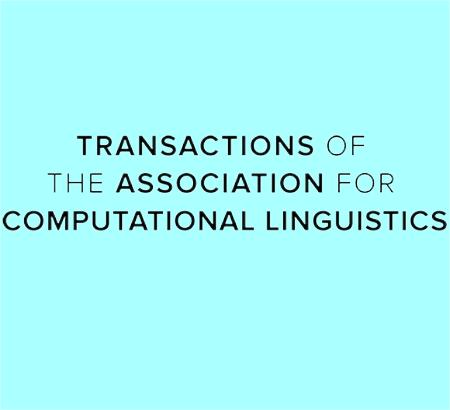让BART搭上习语列车:学会表达习语
IF 4.2
1区 计算机科学
Q2 COMPUTER SCIENCE, ARTIFICIAL INTELLIGENCE
Transactions of the Association for Computational Linguistics
Pub Date : 2022-07-08
DOI:10.1162/tacl_a_00510
引用次数: 1
摘要
摘要习语是自然语言的重要组成部分,具有非复合性的特点。它们一直是NLP的经典挑战,包括推动当今最先进技术的预先训练的语言模型。先前的工作已经发现,他们的情境化表现存在缺陷,源于表现的基本组成范式。在这项工作中,我们采用第一原则方法,使用适配器作为一名受过习语训练的轻量级非组合语言专家,将习语构建到BART中。通过内在和外在方法可以看出相对于基线(例如,BART)的改进能力,其中习语嵌入在嵌入聚类的同质性得分中高出0.19分,在IE意义消歧和跨度检测的习语处理任务中,序列准确率高出25%。本文章由计算机程序翻译,如有差异,请以英文原文为准。
Getting BART to Ride the Idiomatic Train: Learning to Represent Idiomatic Expressions
Abstract Idiomatic expressions (IEs), characterized by their non-compositionality, are an important part of natural language. They have been a classical challenge to NLP, including pre-trained language models that drive today’s state-of-the-art. Prior work has identified deficiencies in their contextualized representation stemming from the underlying compositional paradigm of representation. In this work, we take a first-principles approach to build idiomaticity into BART using an adapter as a lightweight non-compositional language expert trained on idiomatic sentences. The improved capability over baselines (e.g., BART) is seen via intrinsic and extrinsic methods, where idiom embeddings score 0.19 points higher in homogeneity score for embedding clustering, and up to 25% higher sequence accuracy on the idiom processing tasks of IE sense disambiguation and span detection.
求助全文
通过发布文献求助,成功后即可免费获取论文全文。
去求助
来源期刊
CiteScore
32.60
自引率
4.60%
发文量
58
审稿时长
8 weeks
期刊介绍:
The highly regarded quarterly journal Computational Linguistics has a companion journal called Transactions of the Association for Computational Linguistics. This open access journal publishes articles in all areas of natural language processing and is an important resource for academic and industry computational linguists, natural language processing experts, artificial intelligence and machine learning investigators, cognitive scientists, speech specialists, as well as linguists and philosophers. The journal disseminates work of vital relevance to these professionals on an annual basis.

 求助内容:
求助内容: 应助结果提醒方式:
应助结果提醒方式:


